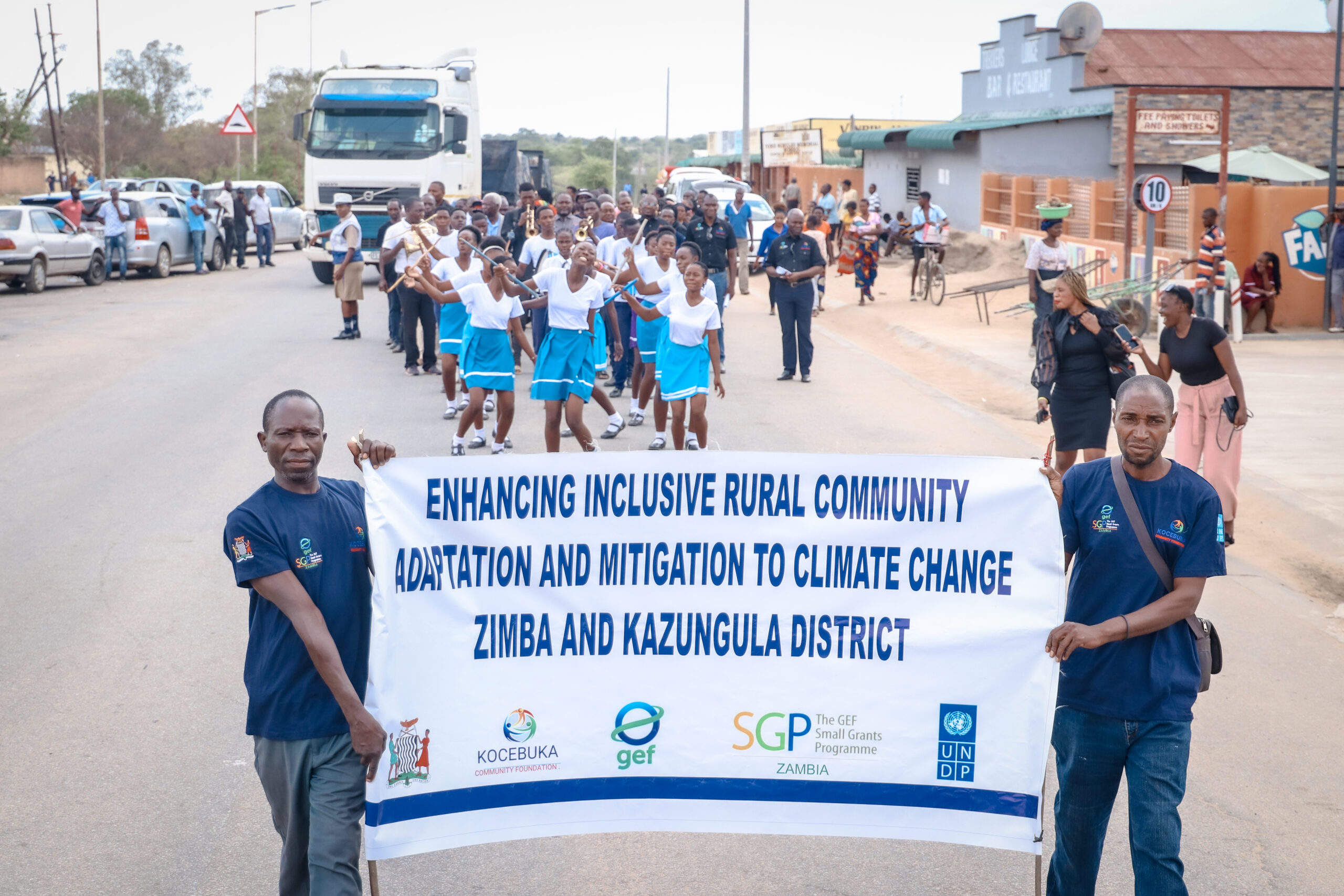Kocebuka Community Foundation, a Community Based Organisation (CBO) in Southern Province, has also observed the growing effects of climate change specifically in the Zimba and Kazungula districts. To address this trend and facilitate climate mitigation and adaptation in the area, the foundation collaborated with Sichimwa Women’s Group to design a project that can enhance food security and stimulate income generating activities within the districts. In June 2022, the Foundation and Women’s Group submitted their proposal for the Enhancing Inclusive Rural Community Adaptation & Mitigation to Climate Change project to the Global Environment Facility’s Small Grants Programme (GEF-SGP) and were successfully awarded a grant of U$D 45,000 (1,028,250).
The project proposal was successful as it resonated with the GEF-SGP’s core approach of positioning the climate change affected community at the forefront of developing and implementing the solutions that would further have an impact of their lives. According to Marisa Mushota Kalima, the National Coordinator for the GEF-SGP in Zambia, the programme “believes that communities themselves have solutions to a number of problems that they are encountering.”

The support of traditional leadership in the project is also crucial to the sustainability of the project’s expected impact. Chief Satunyana attended the launch of the Enhancing Inclusive Rural Community Adaptation & Mitigation to Climate Change project, encouraging this chiefdom to actively support the project’s implementation, stating: “Let us embrace this project… the emphasis should be ownership by the recipients of the project.” This comes hard of the heels of the Conference of the Parties (COP28) where UNDP Zambia held a side event with the Ministry of Green Economy and Environment that covered the necessity of partnerships with traditional leaderships towards effective and comprehensive climate action.
The community and the chiefdom’s involvement in the project will go a long way in ensuring that the project’s impact is maximised and sustained even after its 24-month running period expires. Paswell Nyambe, the Programme Manager of Kocebuka Community Foundation shared his optimism about the project’s future, considering the support and involvement of the Chief and community.
Kocebuka Community Foundation – Post Launch
Post launch, Kocebuka Community Foundation will be working closely with Sichimwa and Kauwe Women’s Groups and other youth and persons with disability groups to implement the project’s activities. The project specifically chose to partner with women, young people, and persons with disabilities as they disproportionally experience the adverse effects of climate change. The Foundation believes that their input and participation will provide keen insights to ensuring that the results produced Leave No One Behind.
Some of the planned activities include planting 300 fruit trees in the districts and providing two model apiaries as alternative sources of livelihoods to drought-stricken communities and training 50 people in both Zimba and Kazungula on Climate SMART Agricultural practices that will facilitate adaptation amongst farmers and households in the area. These will reduce climate change vulnerability by training at least 300 farmers in apiculture by the end of April 2025.

With these efforts, the Foundation hopes to reach 300 people, mitigating the effects climate change has had on their livelihoods.
This post was originally published by UNDP.


